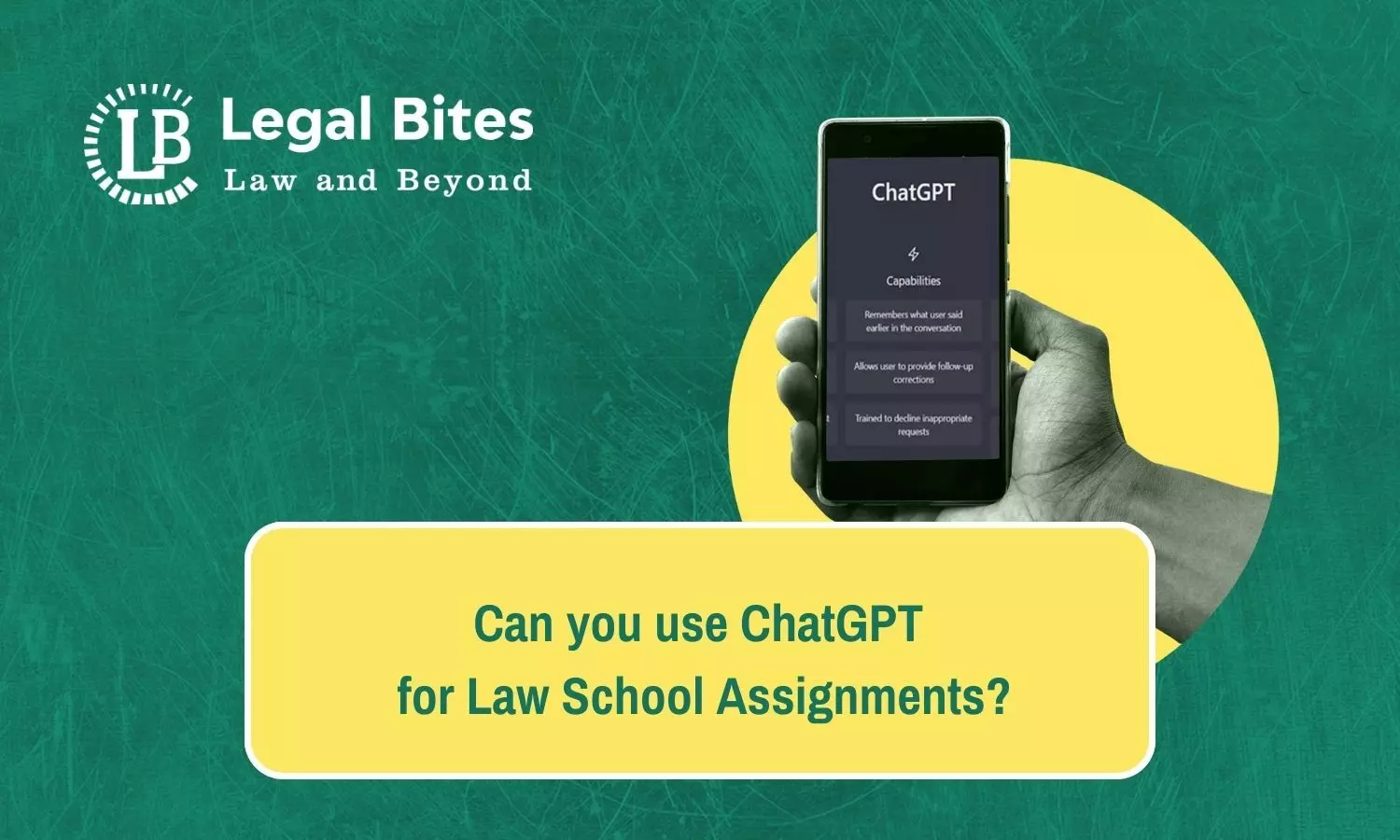Can you use ChatGPT for Law School Assignments?
The study employs a comparative analysis to assess the benefits and limitations of incorporating ChatGPT in legal education.

The article 'Can you use ChatGPT for Law School Assignments?' explores the potential integration of ChatGPT into law school assignments, aiming to evaluate its usefulness as a supplementary tool for law students. The study employs a comparative analysis to assess the benefits and limitations of incorporating ChatGPT in legal education.
Using ChatGPT for law school assignments can be a helpful way to gather information, generate ideas, or seek clarification on legal concepts. However, it's important to remember that ChatGPT is a language model and not a substitute for in-depth legal research or professional legal advice.
Here's How You Can Use ChatGPT Effectively for Law School Assignments:
Research Assistance: ChatGPT can help you find relevant legal sources, case law, statutes, and legal articles. You can ask it to provide information on specific legal topics or recent legal developments, which can save you time in the research process.
Legal Analysis: You can use ChatGPT to analyze and synthesize legal issues, cases, or statutes. It can provide explanations, insights, and different perspectives on a legal topic, helping you understand complex legal concepts.
Writing Support: ChatGPT can assist with drafting and structuring your assignments. It can provide suggestions for creating an outline, improving the organization of your paper, and even offering ideas for introductory and concluding paragraphs.
Citation and Referencing: ChatGPT can help you with proper citation and referencing in legal assignments. You can ask for guidance on citing specific legal authorities, such as cases, statutes, and legal journals.
Legal Terminology: It can help clarify legal terminology, ensuring you use accurate and appropriate terms in your assignments. This is especially helpful if you're not familiar with the nuances of legal language.
Fact-Checking: Use ChatGPT to fact-check your legal arguments and ensure the accuracy of your claims. It can help you avoid errors in your legal analysis.
Review and Proofreading: ChatGPT can provide proofreading and editing suggestions to improve the grammar, punctuation, and style of your writing.
Brainstorming: If you're stuck on a particular topic or need ideas for your assignment, ChatGPT can generate creative suggestions and prompts to help you brainstorm and generate content.
However, it's essential to remember that while ChatGPT is a helpful tool, it should complement your own understanding and efforts. It's not a replacement for in-depth legal research or critical thinking.
Be sure to verify the information and legal arguments generated by ChatGPT and consult with your instructors or professors to ensure that your assignments meet their specific requirements and expectations.
Important Links

